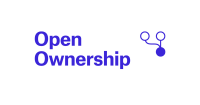About Openownership
Openownership: Promoting Transparency and Accountability in Business
Openownership is a company that provides support and guidance on all aspects of beneficial ownership transparency reforms. The company believes that revealing the true owners of companies is an essential part of a well-functioning economy and society. Openownership aims to promote transparency and accountability in business by providing tools, resources, and expertise to governments, civil society organizations, journalists, researchers, and businesses.
The Importance of Beneficial Ownership Transparency
Beneficial ownership refers to the individuals or entities that ultimately own or control a company. This information is often hidden behind layers of complex corporate structures or held by nominee directors or shareholders. Beneficial ownership transparency means making this information publicly available so that it can be used to prevent corruption, money laundering, tax evasion, terrorist financing, human rights abuses, environmental crimes, and other illicit activities.
Beneficial ownership transparency also helps investors make informed decisions about where to invest their money based on factors such as ethical standards and risk management. It also enables companies to identify potential risks in their supply chains related to human rights violations or environmental damage.
Openownership's Approach
Openownership's approach is based on three pillars: data collection and management; capacity building; advocacy and engagement.
Data Collection and Management
Openownership collects beneficial ownership data from various sources such as public registers; corporate filings; media reports; leaks; whistleblowers; etc. The company then cleanses the data using algorithms that match names with other identifiers such as addresses or passport numbers. The data is then stored in a secure database called OpenOwnership Register which can be accessed by anyone for free.
Capacity Building
Openownership provides training programs for government officials on how to implement beneficial ownership reforms including legal frameworks; technical infrastructure (such as IT systems); inter-agency coordination mechanisms (such as task forces); stakeholder engagement strategies (such as public consultations); etc.
The company also offers technical assistance for civil society organizations, journalists, researchers, and businesses on how to use beneficial ownership data for investigative journalism; due diligence; risk assessment; compliance monitoring; etc.
Advocacy and Engagement
Openownership advocates for beneficial ownership transparency reforms at the national and international levels by engaging with policymakers, regulators, industry associations, multilateral organizations, and other stakeholders. The company also participates in public debates on issues related to beneficial ownership such as tax justice; anti-corruption; human rights; environmental protection; etc.
Openownership's Impact
Since its launch in 2016, Openownership has made significant contributions to the global movement for beneficial ownership transparency. Some of its achievements include:
- Building a global network of partners including governments (such as the UK, France, Ukraine); civil society organizations (such as Transparency International); media outlets (such as OCCRP); research institutions (such as Tax Justice Network); businesses (such as BHP Billiton).
- Developing innovative tools such as Beneficial Ownership Data Standard which is a common language for describing beneficial ownership data that can be used by different systems.
- Influencing policy changes such as the EU's Fifth Anti-Money Laundering Directive which requires all member states to establish public registers of beneficial owners.
- Providing technical assistance to countries such as Kenya where Openownership helped design a legal framework for establishing a public register of companies' ultimate owners.
- Raising awareness about the importance of beneficial ownership transparency through various channels such as social media campaigns (#WhoOwnsWhat), conferences (such as OECD Global Anti-Corruption & Integrity Forum), publications (such as Beneficial Ownership Transparency: A Guidebook).
Conclusion
Openownership is a company that is dedicated to promoting transparency and accountability in business by providing support and guidance on all aspects of beneficial ownership transparency reforms. The company's approach is based on three pillars: data collection and management; capacity building; advocacy and engagement. Since its launch in 2016, Openownership has made significant contributions to the global movement for beneficial ownership transparency by building a global network of partners; developing innovative tools; influencing policy changes; providing technical assistance; and raising awareness.
